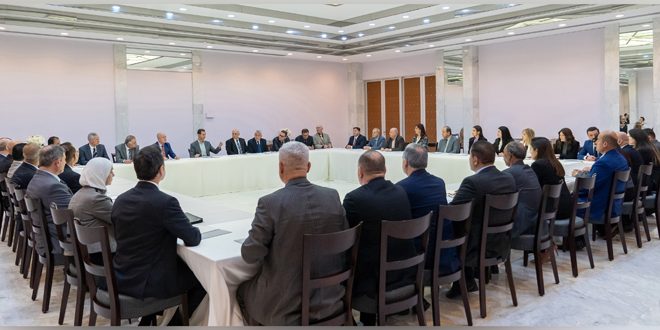In a recent gathering, President Bashar al-Assad convened with esteemed economics professors from various state-run universities, all members of the Baath party, to deliberate on the nation’s economic future.
Highlighting the essence of dialogue, President al-Assad underlined its pivotal role in crafting effective solutions to the array of challenges and hurdles facing the nation. He emphasized that the journey to resolving these issues is progressive, necessitating a culture of continuous, comprehensive, and systematic conversations across all strata of society, including academic institutions, media outlets, and between different societal sectors, all underpinned by a solid foundation of scientific, pragmatic, and scholarly thought.
The discussions ventured into several critical areas, including defining the Syrian economy’s identity, the applicability of socialism, strategies for subsidies, combating corruption, and policies aimed at fostering economic development and growth.
Further, the dialogue touched upon the public sector’s integral role within the state apparatus and the importance of forging a synergistic relationship with the private sector to jump-start production.
President al-Assad critically evaluated the notion of subsidies, arguing that viewing them through a purely ideological or philanthropic lens is a recipe for failure. He posited that recognizing subsidies as an economic tool is where their true utility lies, a principle acknowledged even in most capitalist nations, albeit implemented through varying forms and mechanisms.
This article was translated and edited by The Syrian Observer. The Syrian Observer has not verified the content of this story. Responsibility for the information and views set out in this article lies entirely with the author.


